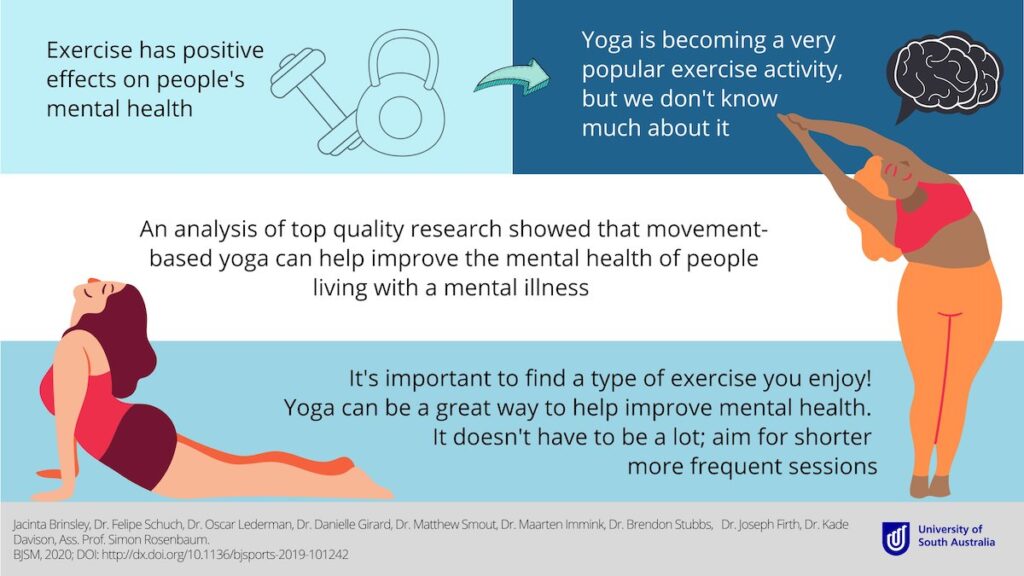
It is clear that mental health services require more funding. But how can you find the right resources? What are the cost and what are the obstacles to treatment? What resources are available? How can you find out what to do when you have an emotional or mental disorder? Let's tackle these questions together. Then let's talk about how we can help each other find the resources they need. This will allow you to see the world in a new way.
Treatment
There are two main types mental health services. One type is outpatient, which treats mild mental illness symptoms in individuals. It is open to anyone, regardless of age, as well as couples and their families. Other options include residential treatment which provides specialized support for those who have more serious conditions such as substance abuse disorders and eating disorders. This article will give you an overview of each type. This article will also include helpful resources for people who are looking into treatment options.
There are many options available for outpatient care and outpatient therapy. Mental Health and Mental Retardation Centers are community mental health centres that provide services for low-income clients. These facilities are located in North Texas. While each of these provides various mental health services, they are intended to serve a diverse population. Many providers offer services for the homeless and the mentally ill as well as people who are suffering from addictions and other mental illnesses.
Prices
Although mental disorders are becoming more expensive globally, we still don't know enough about them. The treatment cost is complex, and there are insufficient data to determine it accurately. There are many reasons that estimates of the economic cost of mental disorders can vary. These include a lack of proper definitions, insufficient populations, poor service usage and analytic framework. Modern epidemiological methods make it possible to accumulate more reliable data. Let's consider the costs of mental health services and the corresponding health care system.

The study looked at three different models of health care insurance and found that prepaid plans facilitate use of specialty mental health services. Prepaid plans provide lower costs for mental treatment as a percentage. Moreover, they show a shift in costs toward outpatient care. These new models are being adopted by many American employers to cut down on their expenses for mental health care. The new models are only partially effective in reducing cost.
Barriers to seeking assistance
The present study evaluated the associations between clinical characteristics and the likelihood of seeking treatment for mental disorders. The researchers found that the presence of three or more disorders, college related characteristics, and treatment-related characteristics were significant predictors of treatment barriers. Suicidal thoughts and generalized anxiety disorder were the most important associations. Results show that the presence of any one or more clinical characteristics is strongly associated with barriers to treatment, including depression.
While most studies were focused on structural barriers, there were some attitudinal and psychological barriers. The most frequent barriers included the preference to handle the problem alone, the desire for friends to discuss it, and the embarrassment associated with seeking help. The stigma associated with mental illness and the lack of access were also less common. These barriers, which include stigmatization and limited knowledge about mental illness, were less often mentioned.
Resources available
You have come to the right spot if you're looking for information on mental health. You can find resources on the Internet from the National Institute of Mental Health that are geared towards young adults and teens. These resources can be used to help friends or family members, as well as provide basic information about mental health. The resource includes links to advocacy opportunities and peer networks. These resources can be printed and used to answer any questions you may have about someone's psychological health.

The Center for Global Mental Health offers resources for those living outside the United States. For information on mental health services, you can also visit The Canadian Alliance on Mental Illness and Mental Health. These organizations offer mental health services for those who require them. These organizations are a great place to start seeking help if you are experiencing symptoms of a mental illness or are dealing with a difficult situation. These organizations can help guide you to the best resource.
FAQ
What can I do if I have mental health problems?
It's imperative to seek help when you're struggling with any mental health issue. Perhaps you've been through trauma or suffered abuse in the past. This could have affected your perception of yourself.
You may also be suffering from an eating disorder, addiction, or another type of mental illness. These disorders can lead to severe life-altering consequences.
You shouldn't try to deal with them on your own. Talk to someone who is familiar with the subject. A professional therapist can provide the support you need to overcome these challenges.
Why is mental health important for students?
Mental health is vital for students because they need to be able to focus on school and do well academically. If you don't feel good, you won't be able to perform well in school. Students with depression frequently miss class which can lead to low grades. This may lead to dropping out of high school and eventually college.
Parents and teachers should be consulted if you are suffering from depression. They'll be able to help you get the care you need.
It is important to understand that not everyone with depression needs medication. Talk therapy is effective for many people. A counselor is a great option for anyone who wants to seek help.
What is Positive Psychology, and Why is It Important?
Positive psychology focuses on what makes us feel better about ourselves, such as happiness, optimism, gratitude, hope, love, kindness, compassion, forgiveness, courage, humility, curiosity, empathy, spirituality, and meaning. Positive psychology helps individuals feel happier, healthier, wiser and more fulfilled through self-improvement.
There are two types, trait positive psychology and positive process psychology. Trait psychology studies how people naturally behave. The process of positive psychology studies how to use specific strategies to achieve certain goals.
Is mental well-being more important than working?
Everyone's mental health is important, especially when working. Try to find a way to unwind after work if you feel stressed.
Talk to your boss or supervisor if you feel stressed. You may find solutions to your stress through them.
Also, take care to your physical health. Eat right, exercise, get enough sleep, and eat healthy.
What are some examples of mental-emotional problems?
Any condition that causes distress or impairment to functioning is called a mental disorder. Anxiety, depression, schizophrenia, borderline personality disorder and obsessive compulsive disorder are all examples of mental disorders.
How can I prevent mental health issues?
It's not always easy to prevent mental illness. But, here are some tips to keep in mind:
-
Don't drink alcohol. Drinking alcohol can cause depression and affect your mood.
-
Avoid drugs. Avoid drugs. They can alter brain chemistry, making you feel worse.
-
Sleep well. Anxiety and depression can result from sleep deprivation.
-
Exercise regularly. Exercise releases endorphins which can make you happy.
-
Healthy foods are the best. Junk food can make you feel lazy and unwell.
-
Spend time with your loved ones. Spending time with those you love can improve your mood.
-
Have fun! Have fun and explore new things.
-
Social media can be exhausting. Social media sites can make you feel lonely and isolated.
-
Take care of yourself. Treat yourself nicely, even if you aren't feeling great.
-
Ask for help. If you're having trouble coping, then ask for help. Talking to your family member or friend can be very helpful.
-
Remember, it's OK to cry. The act of crying helps relieve stress and tension. It doesn't necessarily signify that something bad has happened.
-
Keep busy. Do something you enjoy.
-
You should practice good hygiene. You can feel unattractive and unkempt if you don't maintain good hygiene.
-
Stay connected. Staying connected will help you stay positive.
-
Learn how relaxation works. Meditation and yoga can be helpful in reducing stress.
-
Find meaning in what you do. Finding purpose in your work and hobbies can give you a sense of fulfillment.
-
You should be focusing on the moment. Focusing on the present moment will allow you to stop worrying about the future.
-
Set goals. It can be motivating to set goals.
-
Do something nice for you. Your self-esteem can be raised by doing something kind for yourself.
-
Practice gratitude. Gratitude can help you appreciate all the good things in your life.
-
Volunteer. Volunteering can be a fun way to make a difference and spend your time.
-
Give back. Giving back to others is a way to feel fulfilled.
-
Be alert for warning signs. Don't be afraid to ask for help if your behavior changes.
What are the 5 ways to improve wellbeing?
The state of being well is defined as the "state of physical, mental and spiritual well-being." Several factors affect our well-being, such as family, work, health, relationships, community, environment, education, finances, etc. Your first step to bettering your well-being, is to identify the areas in your life that require improvement. Next, take steps to improve these aspects.
Here are five methods to improve your health and well-being.
-
Exercise - It boosts endorphins, which can make us happier.
-
Sleep – A longer sleep time reduces stress and anxiety.
-
Nutrition – Healthy foods such as fruits & vegetables can boost your mood.
-
Meditation - Regular meditation helps to reduce stress and anxiety.
-
Socialization – It's important to spend time with loved ones and make friends.
Statistics
- In any given year, an estimated 18.1% (43.6 million) of U.S. adults ages 18 years or older suffered from any mental illness, and 4.2% (9.8 million) (healthypeople.gov)
- Neuropsychiatric diseases are the leading cause of death and disability in the U.S., accounting for 18.7 percent of all years of potential lifespan loss and premature mortality.
- Appropriate nutrition and exercise are likely among the most efficacious and cost-effective positive mental health interventions. (ncbi.nlm.nih.gov)
- Similarly, while there is some agreement about the boundaries of typical mental disorders 2, there is likely less agreement about those for positive mental health. (ncbi.nlm.nih.gov)
- It means no drinking any alcoholic beverages and no taking any drugs that aren't 100% natural.
External Links
How To
How to care for children with autism
Autism spectrum disorder (ASD), a neurodevelopmental condition, is characterised by repetitive behavior and impairments in social communication. ASD is a condition that affects one out of 50 people in the world. There is no treatment.
Symptoms usually begin around 18 months of age in infanthood. The most common signs include difficulty understanding others' emotions, lack of eye contact, problems with language development, and difficulties in learning new skills. These symptoms can lead to aggression, self-injury and depression.
Researchers believe that genetics are a factor in this disorder. However, there is no current cause. ASD may be caused by factors like infection, stress, obesity, drugs, vaccines or alcohol. Some viruses such as rubella, measles and others may also increase the risk of developing ASD later.
Early intervention and diagnosis can improve outcomes. However, many parents struggle with their child’s behavior once they are in school. The severity of the symptoms and how much support is needed will determine the treatment options. However, studies have shown that therapies that improve social interaction and reduce problem behaviors can make all the difference.